- Download Price:
- Free
- Dll Description:
- Email PlugIn for IrfanView
- Versions:
- Size:
- 0.11 MB
- Operating Systems:
- Developers:
- Directory:
- E
- Downloads:
- 2450 times.
What is Email.dll? What Does It Do?
The Email.dll file is a dynamic link library developed by Irfan Skiljan, CHENGDU YIWO Tech Development Co. Ltd. This library includes important functions that may be needed by softwares, games or other basic Windows tools.
The Email.dll file is 0.11 MB. The download links are current and no negative feedback has been received by users. It has been downloaded 2450 times since release.
Table of Contents
- What is Email.dll? What Does It Do?
- Operating Systems That Can Use the Email.dll File
- All Versions of the Email.dll File
- Guide to Download Email.dll
- Methods to Solve the Email.dll Errors
- Method 1: Solving the DLL Error by Copying the Email.dll File to the Windows System Folder
- Method 2: Copying The Email.dll File Into The Software File Folder
- Method 3: Uninstalling and Reinstalling the Software that Gives You the Email.dll Error
- Method 4: Solving the Email.dll Error using the Windows System File Checker (sfc /scannow)
- Method 5: Fixing the Email.dll Error by Manually Updating Windows
- Our Most Common Email.dll Error Messages
- Dll Files Similar to Email.dll
Operating Systems That Can Use the Email.dll File
All Versions of the Email.dll File
The last version of the Email.dll file is the 3.7.0.0 version released on 2012-06-30. There have been 1 versions previously released. All versions of the Dll file are listed below from newest to oldest.
- 3.7.0.0 - 32 Bit (x86) (2012-06-30) Download directly this version
- 3.7.0.0 - 32 Bit (x86) Download directly this version
Guide to Download Email.dll
- Click on the green-colored "Download" button on the top left side of the page.
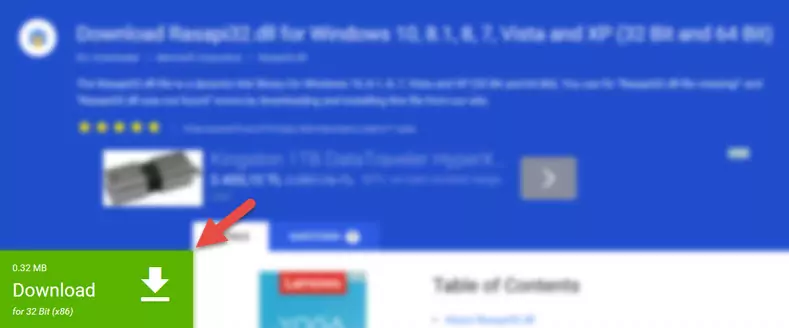
Step 1:Download process of the Email.dll file's - "After clicking the Download" button, wait for the download process to begin in the "Downloading" page that opens up. Depending on your Internet speed, the download process will begin in approximately 4 -5 seconds.
Methods to Solve the Email.dll Errors
ATTENTION! Before beginning the installation of the Email.dll file, you must download the file. If you don't know how to download the file or if you are having a problem while downloading, you can look at our download guide a few lines above.
Method 1: Solving the DLL Error by Copying the Email.dll File to the Windows System Folder
- The file you will download is a compressed file with the ".zip" extension. You cannot directly install the ".zip" file. Because of this, first, double-click this file and open the file. You will see the file named "Email.dll" in the window that opens. Drag this file to the desktop with the left mouse button. This is the file you need.
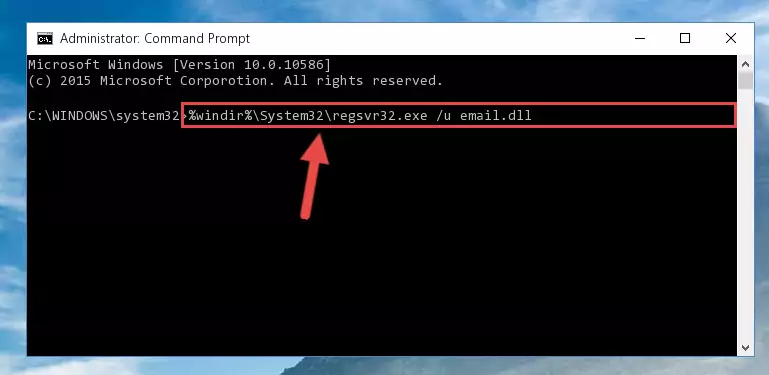
Step 1:Extracting the Email.dll file from the .zip file - Copy the "Email.dll" file and paste it into the "C:\Windows\System32" folder.
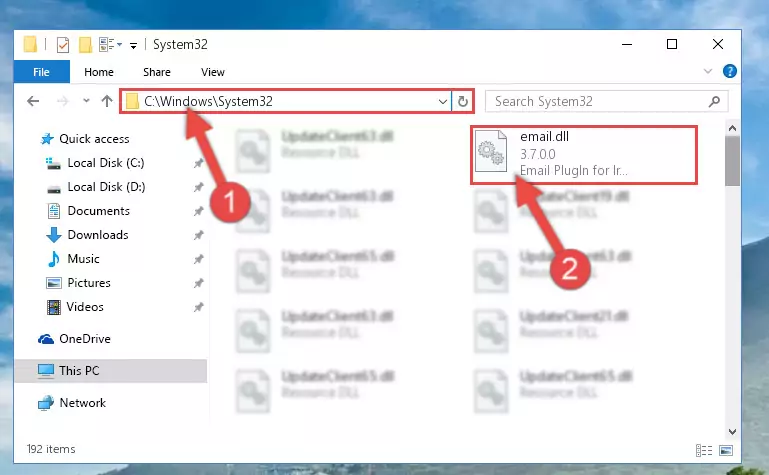
Step 2:Copying the Email.dll file into the Windows/System32 folder - If your system is 64 Bit, copy the "Email.dll" file and paste it into "C:\Windows\sysWOW64" folder.
NOTE! On 64 Bit systems, you must copy the dll file to both the "sysWOW64" and "System32" folders. In other words, both folders need the "Email.dll" file.
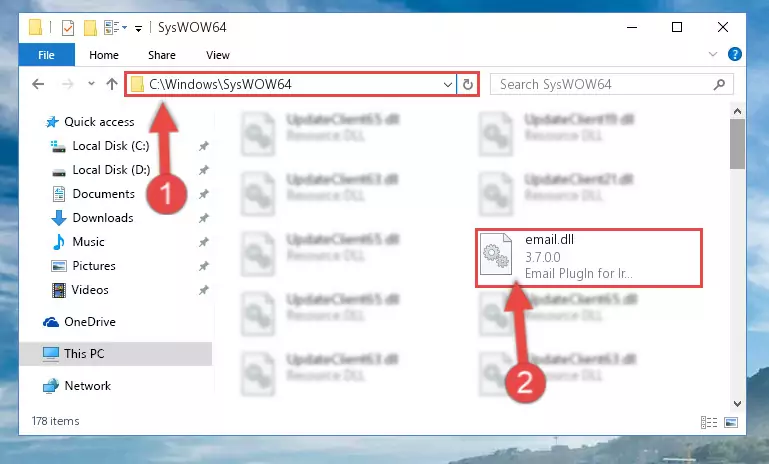
Step 3:Copying the Email.dll file to the Windows/sysWOW64 folder - In order to complete this step, you must run the Command Prompt as administrator. In order to do this, all you have to do is follow the steps below.
NOTE! We ran the Command Prompt using Windows 10. If you are using Windows 8.1, Windows 8, Windows 7, Windows Vista or Windows XP, you can use the same method to run the Command Prompt as administrator.
- Open the Start Menu and before clicking anywhere, type "cmd" on your keyboard. This process will enable you to run a search through the Start Menu. We also typed in "cmd" to bring up the Command Prompt.
- Right-click the "Command Prompt" search result that comes up and click the Run as administrator" option.
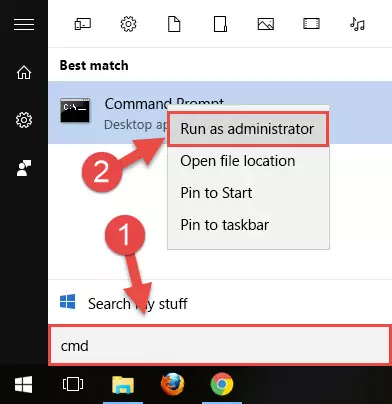
Step 4:Running the Command Prompt as administrator - Paste the command below into the Command Line window that opens up and press Enter key. This command will delete the problematic registry of the Email.dll file (Nothing will happen to the file we pasted in the System32 folder, it just deletes the registry from the Windows Registry Editor. The file we pasted in the System32 folder will not be damaged).
%windir%\System32\regsvr32.exe /u Email.dll
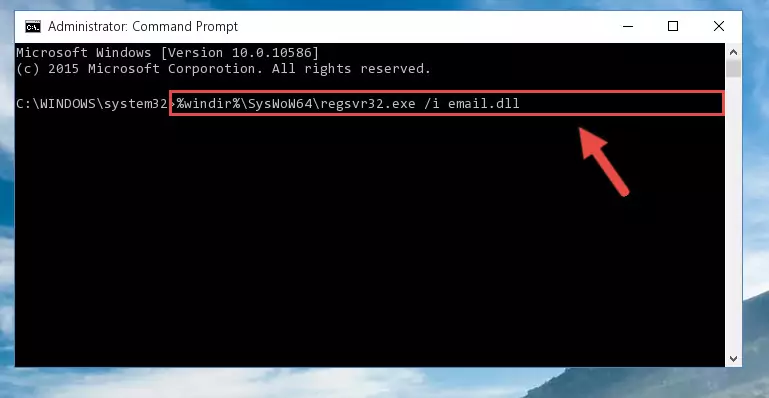
Step 5:Cleaning the problematic registry of the Email.dll file from the Windows Registry Editor - If the Windows you use has 64 Bit architecture, after running the command above, you must run the command below. This command will clean the broken registry of the Email.dll file from the 64 Bit architecture (The Cleaning process is only with registries in the Windows Registry Editor. In other words, the dll file that we pasted into the SysWoW64 folder will stay as it is).
%windir%\SysWoW64\regsvr32.exe /u Email.dll
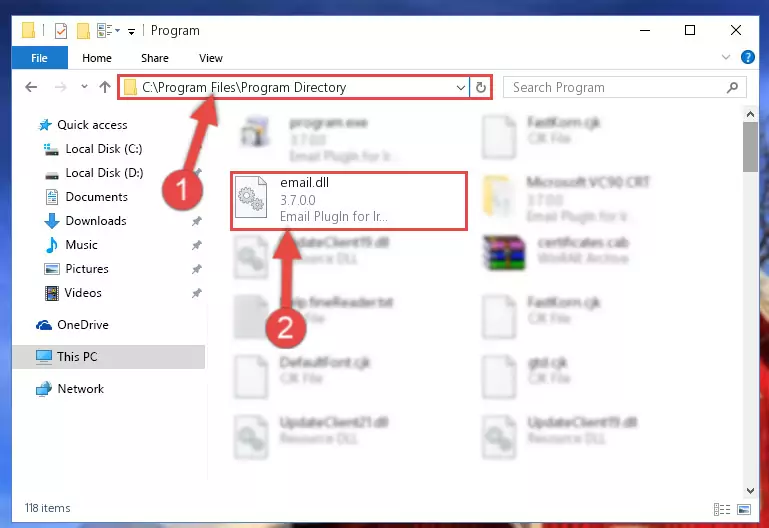
Step 6:Uninstalling the broken registry of the Email.dll file from the Windows Registry Editor (for 64 Bit) - You must create a new registry for the dll file that you deleted from the registry editor. In order to do this, copy the command below and paste it into the Command Line and hit Enter.
%windir%\System32\regsvr32.exe /i Email.dll
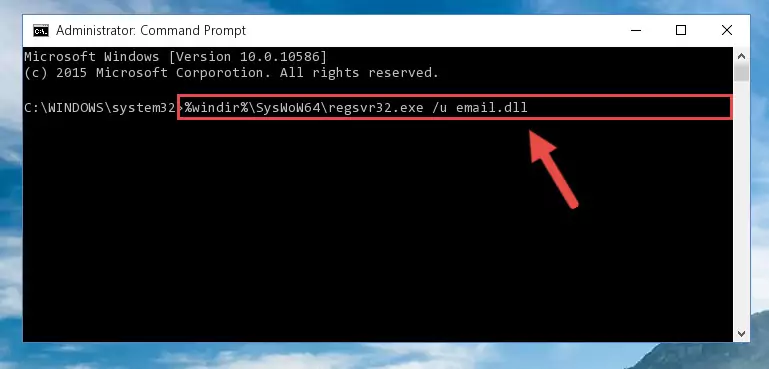
Step 7:Creating a new registry for the Email.dll file - Windows 64 Bit users must run the command below after running the previous command. With this command, we will create a clean and good registry for the Email.dll file we deleted.
%windir%\SysWoW64\regsvr32.exe /i Email.dll
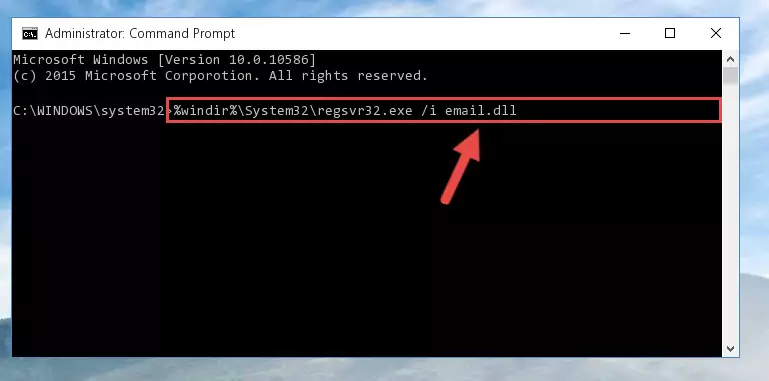
Step 8:Creating a clean and good registry for the Email.dll file (64 Bit için) - If you did all the processes correctly, the missing dll file will have been installed. You may have made some mistakes when running the Command Line processes. Generally, these errors will not prevent the Email.dll file from being installed. In other words, the installation will be completed, but it may give an error due to some incompatibility issues. You can try running the program that was giving you this dll file error after restarting your computer. If you are still getting the dll file error when running the program, please try the 2nd method.
Method 2: Copying The Email.dll File Into The Software File Folder
- In order to install the dll file, you need to find the file folder for the software that was giving you errors such as "Email.dll is missing", "Email.dll not found" or similar error messages. In order to do that, Right-click the software's shortcut and click the Properties item in the right-click menu that appears.
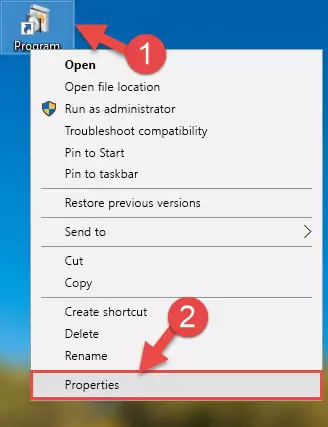
Step 1:Opening the software shortcut properties window - Click on the Open File Location button that is found in the Properties window that opens up and choose the folder where the application is installed.
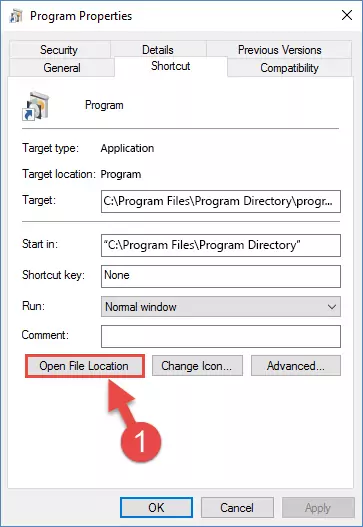
Step 2:Opening the file folder of the software - Copy the Email.dll file into the folder we opened.
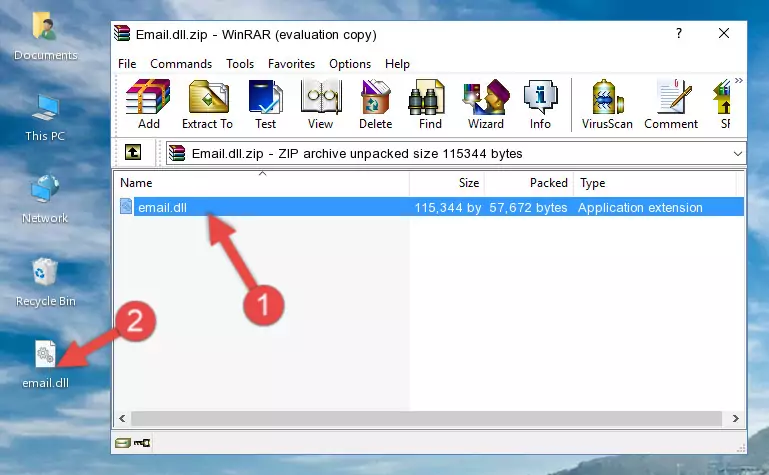
Step 3:Copying the Email.dll file into the file folder of the software. - The installation is complete. Run the software that is giving you the error. If the error is continuing, you may benefit from trying the 3rd Method as an alternative.
Method 3: Uninstalling and Reinstalling the Software that Gives You the Email.dll Error
- Press the "Windows" + "R" keys at the same time to open the Run tool. Paste the command below into the text field titled "Open" in the Run window that opens and press the Enter key on your keyboard. This command will open the "Programs and Features" tool.
appwiz.cpl
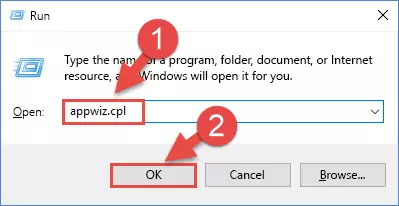
Step 1:Opening the Programs and Features tool with the Appwiz.cpl command - The Programs and Features screen will come up. You can see all the softwares installed on your computer in the list on this screen. Find the software giving you the dll error in the list and right-click it. Click the "Uninstall" item in the right-click menu that appears and begin the uninstall process.
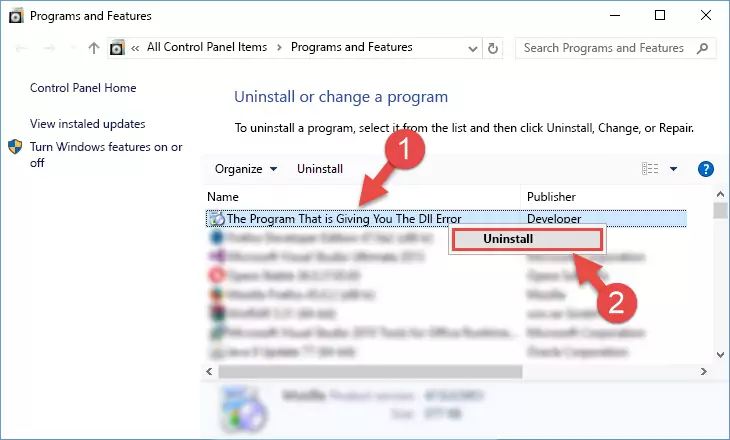
Step 2:Starting the uninstall process for the software that is giving the error - A window will open up asking whether to confirm or deny the uninstall process for the software. Confirm the process and wait for the uninstall process to finish. Restart your computer after the software has been uninstalled from your computer.
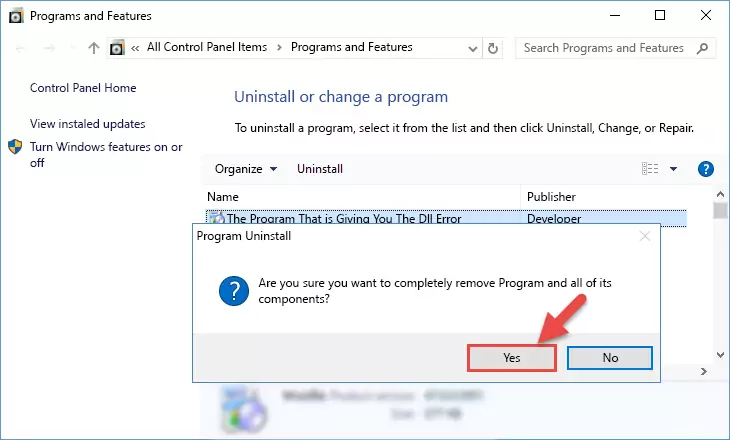
Step 3:Confirming the removal of the software - After restarting your computer, reinstall the software that was giving the error.
- This method may provide the solution to the dll error you're experiencing. If the dll error is continuing, the problem is most likely deriving from the Windows operating system. In order to fix dll errors deriving from the Windows operating system, complete the 4th Method and the 5th Method.
Method 4: Solving the Email.dll Error using the Windows System File Checker (sfc /scannow)
- In order to complete this step, you must run the Command Prompt as administrator. In order to do this, all you have to do is follow the steps below.
NOTE! We ran the Command Prompt using Windows 10. If you are using Windows 8.1, Windows 8, Windows 7, Windows Vista or Windows XP, you can use the same method to run the Command Prompt as administrator.
- Open the Start Menu and before clicking anywhere, type "cmd" on your keyboard. This process will enable you to run a search through the Start Menu. We also typed in "cmd" to bring up the Command Prompt.
- Right-click the "Command Prompt" search result that comes up and click the Run as administrator" option.

Step 1:Running the Command Prompt as administrator - Type the command below into the Command Line page that comes up and run it by pressing Enter on your keyboard.
sfc /scannow
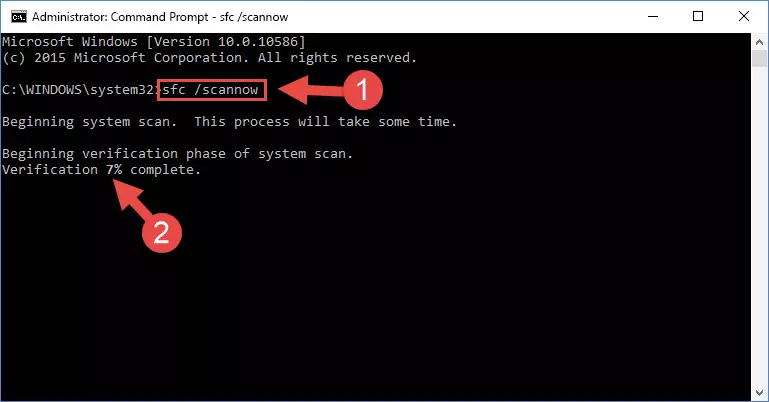
Step 2:Getting rid of Windows Dll errors by running the sfc /scannow command - The process can take some time depending on your computer and the condition of the errors in the system. Before the process is finished, don't close the command line! When the process is finished, try restarting the software that you are experiencing the errors in after closing the command line.
Method 5: Fixing the Email.dll Error by Manually Updating Windows
Most of the time, softwares have been programmed to use the most recent dll files. If your operating system is not updated, these files cannot be provided and dll errors appear. So, we will try to solve the dll errors by updating the operating system.
Since the methods to update Windows versions are different from each other, we found it appropriate to prepare a separate article for each Windows version. You can get our update article that relates to your operating system version by using the links below.
Guides to Manually Update for All Windows Versions
Our Most Common Email.dll Error Messages
The Email.dll file being damaged or for any reason being deleted can cause softwares or Windows system tools (Windows Media Player, Paint, etc.) that use this file to produce an error. Below you can find a list of errors that can be received when the Email.dll file is missing.
If you have come across one of these errors, you can download the Email.dll file by clicking on the "Download" button on the top-left of this page. We explained to you how to use the file you'll download in the above sections of this writing. You can see the suggestions we gave on how to solve your problem by scrolling up on the page.
- "Email.dll not found." error
- "The file Email.dll is missing." error
- "Email.dll access violation." error
- "Cannot register Email.dll." error
- "Cannot find Email.dll." error
- "This application failed to start because Email.dll was not found. Re-installing the application may fix this problem." error
